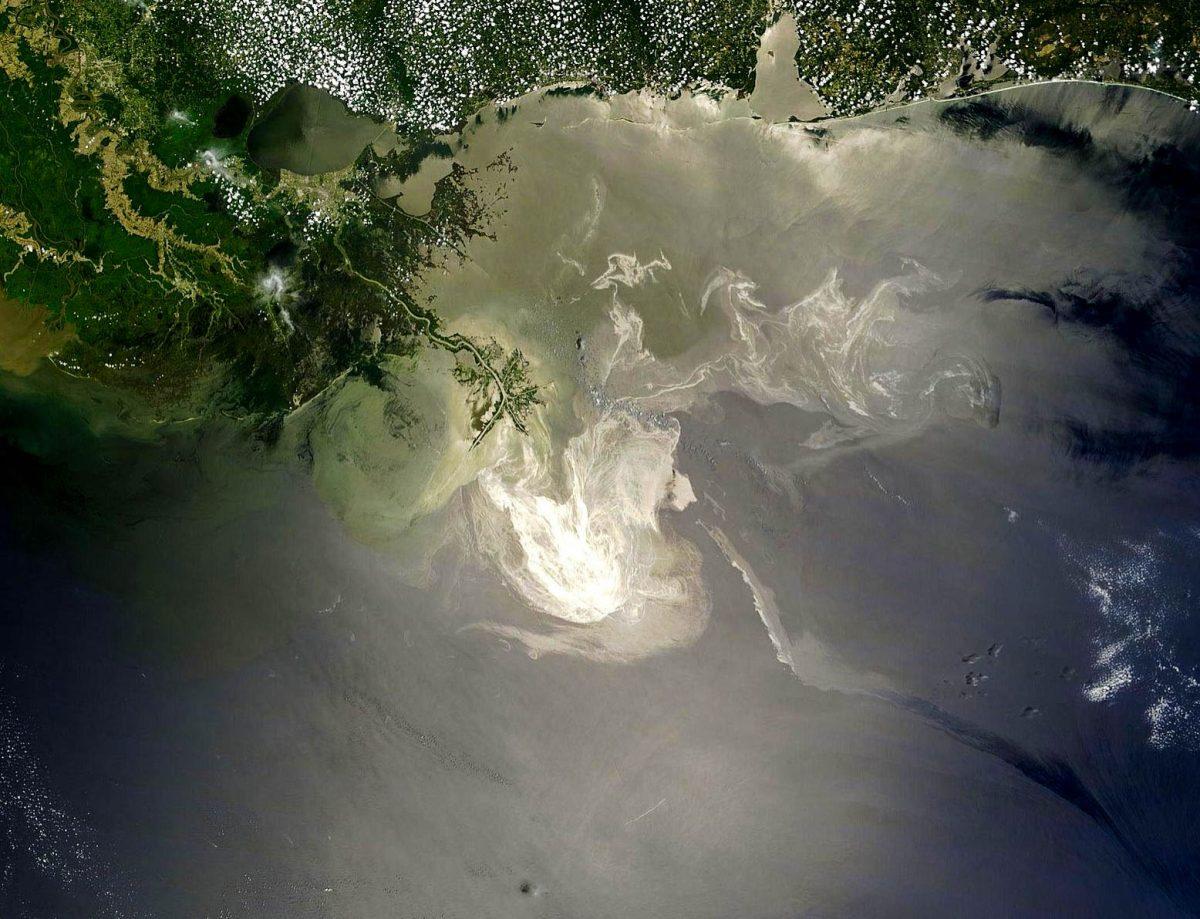Ten years after the Deepwater Horizon oil rig exploded, scientists are only now beginning to fully understand the long-term environmental effects.
This disaster would lead to 134,000 gallons of oil spilled in the Gulf of Mexico, 11 people killed, 102,000 dead birds across 93 species, and 25,900 marine animals possibly harmed, according to data compiled by the National Oceanic and Atmospheric Administration, the U.S. Fish and Wildlife Services and the Center for Biological Diversity.
The explosion on April 20, 2010, caused oil to spew into the Gulf of Mexico, 41 miles off the coast of Louisiana, until Sept. 19, 2010. The rig was owned and operated by the offshore-oil drilling company Transocean and leased by oil giant, BP. The incident is still considered the largest marine oil spill in the history of the petroleum industry.
A horrific accident resulting in environmental devastation, Deepwater Horizon made clear the risk of oil spills on the environment, said Scott Socolofsky, Ph.D., a Texas A&M professor of civil and environmental engineering. The Deepwater Horizon incident brought about more awareness for how oil spills harm oceans, said Socolofsky, who specializes in marine oil spill response, mitigation and modelling.
“Before the Deepwater Horizon, oil spill response was less aware of the dissolved [oil],” Socolofsky said, adding that “[oil] that dissolved, never came out of the ocean.”
After the disaster, it became clear that dissolved oil was trapped at a lower depth of the ocean, Socolofsky said.
“It was trapped because the ocean is stratified, that just means that dense sea water is at the bottom of the ocean and lighter sea water is at the top,” Socolofsky said. “So because of that stratification, the dissolved chemicals didn’t get out of the ocean. They stayed in the ocean at about 1,000 meters depth.”
The Deepwater Horizon oil spill harmed wildlife in the Gulf the way all oil spills do, forcing marine animals out of their environments, said Soo Bum Bae, a Ph.D. student in the Zachary Department of Civil and Environmental Engineering.
“All these marine animals lost their habitats due to these oil spills because when the oil is as close to the water as it is, it increases toxicity,” Bae said. “When they breathe this oil, it destroys their respiratory system and affects their offspring.”
Animal experts are focusing on ocean animals due to high habitat risk, said Charlotte Wilson, an animal science major with a Pre-Vet concentration at Stephen F. Austin University.
“Our ocean is already super high risk, and so are the animals that reside in it,” Wilson said. “Oil spills don’t just affect these large animals that we can see, they also affect these small organisms that are in the ocean that you can only see under a microscope.”
When sea animals are harmed during oil spills, humans are harmed as a direct result, Bae explained.
“Imagine eating fish or shellfish who were close to the oil spill,” Bae said. “If we eat them, do you think that is safe? It’s not.”
Detergents have been used to aid oil spill clean up, although some studies have shown an increased toxicity in the water after use.
“Humans, dolphins, birds, underwater coral — somebody is going to get oil on them — and whether or not you spray dispersant will change who,” Socolofsky said. “And that’s unfortunate; that’s why we don’t like oil spills.”
There have been at least 44 oil spills since 1969, according to the Office of Response and Restoration with the most recent spill occurring on Aug. 8 in the Golfo Triste off the coast of Venezuela. Moving forward, Wilson said oil companies must focus on oil spill prevention, not mitigation.
“I think the biggest thing in animal welfare involving oil spills is just finding better prevention and having a plan in place for if an oil spill does happen,” Wilson said. “What would be the quickest, most efficient and helpful way to clean up the environment and animals that were and are affected by the oil spills?”
This story is a collaboration between The Battalion and upperclassmen in Texas A&M’s journalism degree. To see the online copy of the Climate Change extra print edition, click here.




















